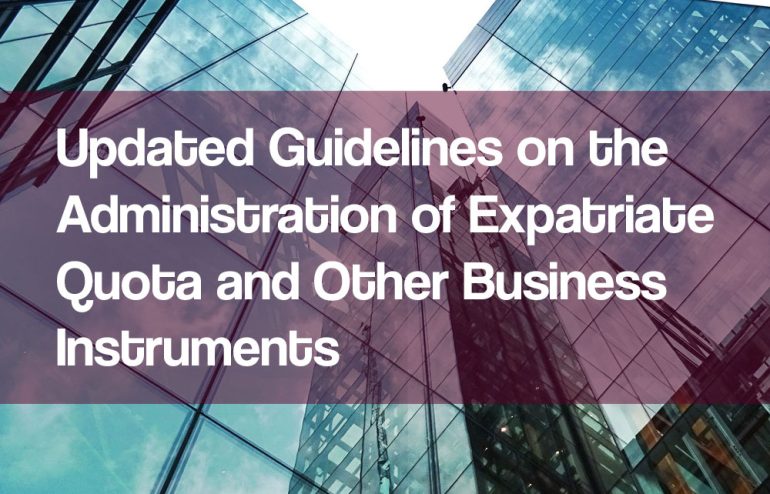The Bank Employees, etc. (Declaration Of Assets) Act[1] is described in its preamble as an “Act to make provisions for the declaration of assets by employees of banks operating in Nigeria and to empower the President to extend its application to other categories of persons”. On 22nd April 2021 proposed amendments to the Act, referred to as “The Bank Employees, Etc., (Declaration of Assets) (Amendment) Bill 2021” passed through the first reading on the floor of the Federal House of Representatives.
As a way of establishing context and before delving into the few ‘fresh sections’ in the proposed bill, we review some of the key provisions of the brief but seldomly articulated law in its current form.
Current Law
Upon the commencement of the Act, every employee[2] of a bank is required to fully disclose all his assets within 14 days and subsequently, new employees are required to so disclose, within 14 days from the date of resumption[3].
On completion and execution of the declaration form as prescribed, the employee is required to submit same to the bank’s chief executive who is equally required to transmit the forms to the appropriate authority[4] within 7 days after the prescribed 14 days under Section 1 of the Act[5].
Section 4 (1) of the Act requires all bank employees to make a yearly asset declaration within 7 days of the anniversary of the initial declaration. The chief executive officer of every bank is equally mandated to not later than 7th January or 7th July, submit to the appropriate authority a list of all employees who joined or left the employment of the bank, six months prior [6]. See Schedule Form D (The Biannual Returns of Employees Movements contained in Form D of the Schedule to this Act).
Once submitted, the appropriate authority is at liberty to verify the asset declaration forms and may choose to direct thorough investigations into the assets and activities of the employees, their assets, and the activities of their spouses, children, relatives, parents associates and privies[7].
Offences
Under Section 7(1) of the Act, it is an offence for a bank employee to own assets in excess of his legitimate, known and provable income and assets and where found guilty of the offence shall be liable to 10 years in prison upon conviction and in addition shall forfeit, to the Nigerian Government, the subject asset(s) or its monetary equivalent.
It is equally an offence, punishable by 10 years imprisonment and forfeiture, to not declare or falsely declare assets in part or in whole [8].
Persons who act as fronts on behalf of a banker are equally liable upon conviction to imprisonment for a period of seven years and expectedly the assets involved are susceptible to seizure [9].
Proposed Amendments
The Bill proposes the deletion and replacement of Section 1(1) and (2) of the Act. The proposed amendment to Section 1(1) reads as follows:
“(1) Every employee of a bank shall, immediately after assuming duty and, thereafter, at the determination of his (or her) employment, and in the case of a serving banker, within thirty (30) days of the receipt of the Declaration of Assets form from the appropriate authority or at such other intervals as the President or the appropriate authority may specify, make a full disclosure of his (or her) properties, assets and liabilities, and those of his (or her) spouse or unmarried children under the age of 18 years.
(2) For the purpose of this section, a transfer or secondment from one bank to another shall be treated as a new employment.”
The new Section 5 of the Bill, seeks to prohibit the maintenance and operation of personal bank accounts outside Nigeria. It states, as follows:
“(a) A bank employee shall not maintain or operate a personal bank account in any country outside Nigeria.
(b) Any complaint that a bank employee has committed a breach of or has not complied with the provisions of this Act shall be made to the Central Bank of Nigeria or the appropriate regulatory body in the case of employees of other Financial Institutions.”
Section 12(1) and (2) and is to be replaced with the following:
“(1) The President may direct by an instrument published in the Federal Gazette that the provisions of this Act be applied to other financial institutions.
(2) Where the President directs as provided in Subsection 1 of this section, the Act shall apply subject to such textual modification as may be necessary for its execution.”
Comments
Section 1(1) of the proposed new Bill imposes asset declaration, not only, upon the bank employee but also on their spouse(s) and children under the age of 18. Clearly this provision raises questions surrounding the breach of privacy of non-bankers.
The Constitution of the Federal Republic of Nigeria 1999 (as amended) guarantees the right to privacy [10] and such rights may only be restricted or derogated from in the interest of defence, public safety, public order, morality or health or for the purpose of protecting the rights and freedoms of other persons [11]. An objective assessment of the proposed amendment in this regard is unlikely to weigh in favour of the Section vis-à-vis the right to demand the asset declaration of non-bankers.
A strict application of the proposed new provisions under Section 5 of the Bill, poses extremely difficult circumstances for bank employees. In our view these provisions are draconian and fail to take cognisance of the freedom of persons’ rights to hold bank accounts outside Nigeria as a matter of choice. Undoubtedly, the provision is likely to deter a pool of talented diaspora Nigerian and Non-Nigerian executives.
The need for the authorities to prosecute erring bankers is well understood, in many ways the employees of banks and financial institutions play a pivotal role in the control, management and protection of funds owned by members of the public and therefore the sanctity of the sector is extremely critical in maintaining sanity and public confidence in the sector. However, criminalising the use of foreign accounts is excessive, bearing in mind the existing requirement to routinely file robust declaration forms.
Footnotes:
[1] Cap. B1 Laws of the Federation of Nigeria 2004.
[2] “employee” or “employee of a bank” includes the Governor, the Chairman and members of the Board, Managing Director, Director, General Manager, Manager, Examiner, Inspector, Controller, Agent, Supervisor, Officer, Clerk, Cashier, Messenger, Cleaner, Driver, and any other category of workers of the Central Bank, a bank or other financial institution of whatever title or designation, whether general or peculiar to the Bank; and for the avoidance of doubt, it includes a person engaged as a part‐time, casual or temporary worker and also any worker deployed to work in any branch or office of the Bank in or outside Nigeria.
[3] Sections 1(1), 1(2)
[4] “appropriate authority” means the Secretary to the Federal Government or any person he may designate in that behalf by an instrument published in the Federal Gazette. See section 14 of the Act
[5] Sections 3(1), 3(2)
[6] Section 5(1).
[7] Section 6.
[8] Section 8(1)(a),1(b),1(c),1(d).
[9] Section 9(1), 9(2).
[10] Section 37 of the Constitution.
[11] Section 45 of the Constitution.
Download this article as a pdf:










